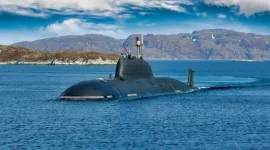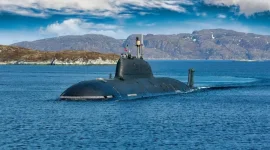- Views: 3K
- Replies: 19
The Indian Navy's acquisition of the Akula-class nuclear attack submarine, INS Chakra III, has been delayed by three years and is now expected to join the fleet by 2028. Initially scheduled for delivery in 2025, the submarine's arrival has been pushed back due to challenges stemming from the ongoing Russia-Ukraine conflict.
India and Russia signed a $3 billion deal in 2019 for the ten-year lease of the Akula-1 class submarine after two years of negotiations. This acquisition is crucial for the Indian Navy, bolstering its underwater capabilities and strengthening its maritime presence in the Indian Ocean Region (IOR).
Nuclear-powered attack submarines (SSNs) like the Akula class offer significant advantages over conventional diesel-electric submarines. Their high speed, extended endurance, and ability to remain submerged for long periods make them ideal for extended operations at sea. While not equipped with nuclear weapons, INS Chakra III will provide India with a potent conventional attack capability, designed to track and neutralize enemy ships and submarines.
This will be the third Akula-class submarine leased to India by Russia. The first, INS Chakra I, arrived in 1988, followed by INS Chakra II in 2012. These leases have been instrumental in enhancing the Indian Navy's expertise in operating nuclear submarines and have facilitated technological transfer and training, aiding in the development of India's indigenous nuclear submarine program, including the Arihant class SSBNs.
INS Chakra III is expected to feature upgraded systems and technology compared to its predecessors, providing enhanced operational capabilities, stealth, and firepower. This modernization will make it a vital asset for the Indian Navy in projecting power and ensuring regional security.
The delay in delivery is attributed to several factors, primarily the Russia-Ukraine conflict, which has strained Russia's defence production timelines and resources. The conflict has reportedly impacted Russia's ability to fulfill international defence orders, including other procurements for India. Additionally, refurbishing and customizing the Akula-class submarine to meet India's specific requirements involves extensive modernization work, further contributing to the delay.
Despite the setback, INS Chakra III will offer significant strategic advantages upon its induction. The submarine will enhance India's underwater deterrence capabilities, particularly crucial given the growing presence of other naval powers in the IOR. It will also enable the Indian Navy to conduct extended reconnaissance, escort operations, and anti-submarine warfare missions with increased stealth.


